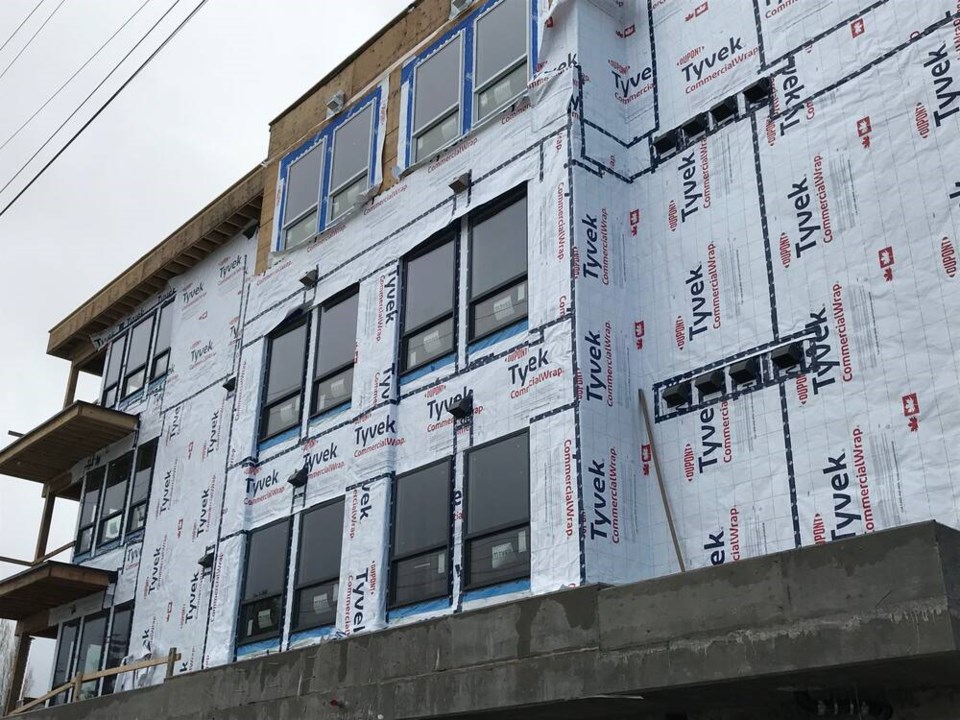Will the push to have greener buildings in Delta also start making them less affordable?
That question was posed during council’s discussion earlier this month on the city’s updated Community Energy and Emissions Plan, which contains a series of recommended strategies to achieve further greenhouse gas reduction targets.
The plan lays out actions in three categories: infrastructure, policy, and public engagement. The key action categories include encouraging active transportation and transit ridership, improving energy efficiency in new and existing buildings, reducing waste, and enhancing the urban forest and natural areas.
When it comes to buildings, a report to council explains the strategies related to buildings consider increasing energy efficiency and reducing greenhouse gas emissions through electrification of new and existing buildings in Delta and/or increasing the use of renewable natural gas.
It can be achieved in new buildings through advancing the BC Energy Step Code and Zero Carbon Step Code.
In May 2023, meeting Step 3 (20 per cent more energy efficient buildings) of the BC Energy Step Code became a requirement of the BC Building Code.
The Delta strategies focus on education and incentives to achieve reductions that are over and above what is required by the province.
“In existing buildings, increasing energy efficiency and reducing greenhouse gas emissions can be achieved through education to encourage energy retrofits and the uptake of heat pumps including increasing awareness of government and utility grants available for these retrofits,” the report notes.
A survey found the majority of respondents agree it is important for the city to do more to ensure new buildings are energy efficient and have low carbon heating systems.
The top two most-supported actions were encouraging the preservation of natural assets like trees to offer cooling during hot weather and adopting the BC Energy Step Code to require energy efficiency in new buildings.
“While existing buildings generate the majority of building-related greenhouse gas emissions, local governments have greater authority to influence new construction. They can do so via the BC Energy Step Code and BC Zero Carbon Step Code, a section of the BC Building Code that local governments may use to require or incentivize better-than-code energy and emissions performance in new construction. The Energy Step Code is a great tool for improving overall building energy performance, while the Zero Carbon Step Code explicitly address emissions from new buildings, “according to the report.
Every new building built to minimum code standards is a lost opportunity for improved energy efficiency and reduced carbon emissions and is one more building that will have to be retrofitted down the road, the report notes, outlining a proposed “aspirational target" of having all new buildings built to Step 4 of the Energy Step Code and 90 per cent of the community’s new buildings using only zero carbon energy sources for space and water heating.
During their May 6 discussion, Coun. Dan Boisvert conveyed concerns what it could mean when it comes to the costs for new buildings.
“So, amongst the climate crises…housing being another one, I’m a little bit concerned that if those priorities hit our housing sector in terms of new development, maybe some of those projects are no longer economically viable. We all of a sudden don’t get the housing, and I think we have to be very cautious how we balance one crises against the other crises as to which one it is we need,” said Boisvert.
“Global warming is a problem, not having people housed is a problem, and we may have to determine which one is the bigger problem. So, I just ask that we keep that in mind.”
A recent report to Metro Vancouver’s Climate Action Committee notes that the regional district board chose not to proceed with engagement on a potential regulatory approach to phase in emissions limits for existing large buildings.
In response to the Metro Vancouver board’s concerns, including impacts on affordability, Metro staff have been exploring alternative means to supporting large buildings in the energy transition with an aim to protecting human health and reducing energy waste and associated costs.
“With the rise in extreme heat events and cold snaps in the region in recent years, every building needs a plan to improve energy efficiency, safeguard occupant health and comfort, and reduce emissions,” the report notes.
Staff subsequently recommended benchmarking and reporting programs to increase building owner awareness of building energy and emissions performance, with the ultimate goal of identifying opportunities to cut energy waste.



